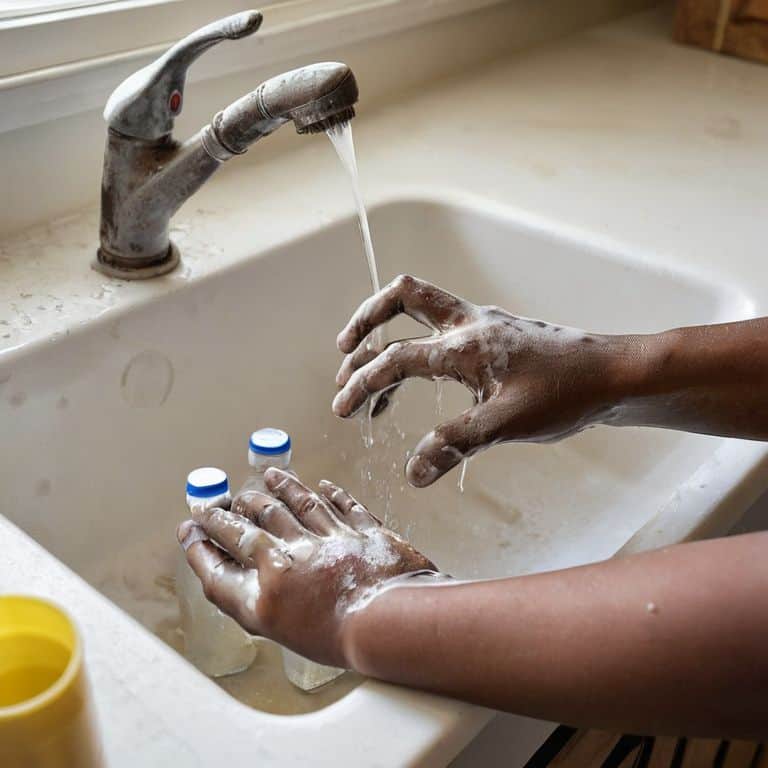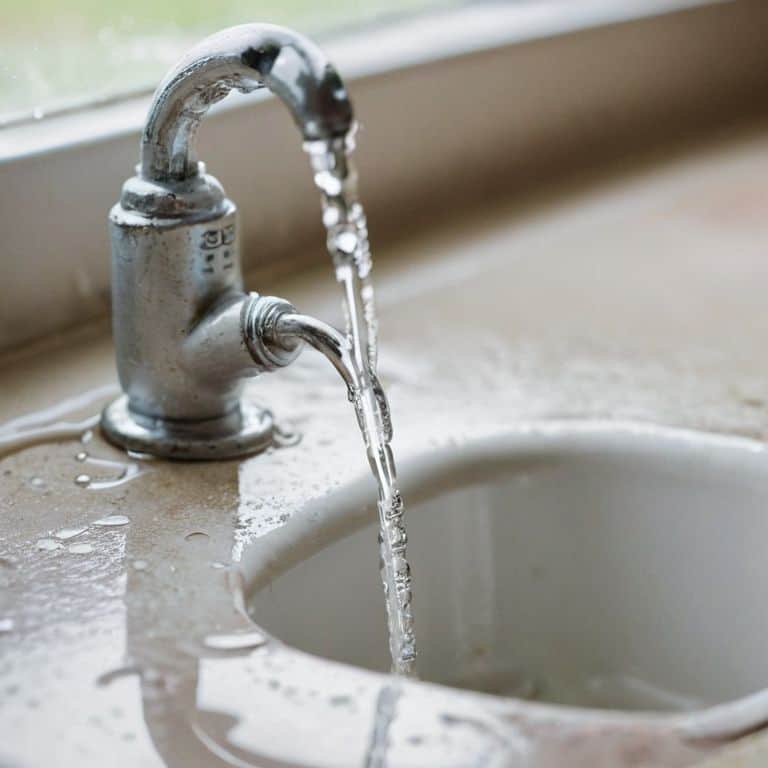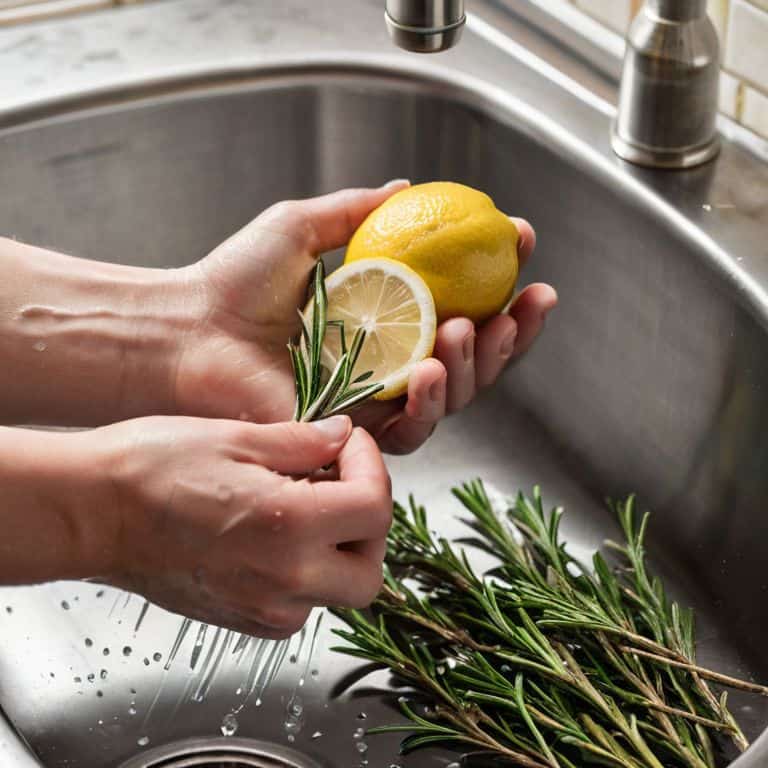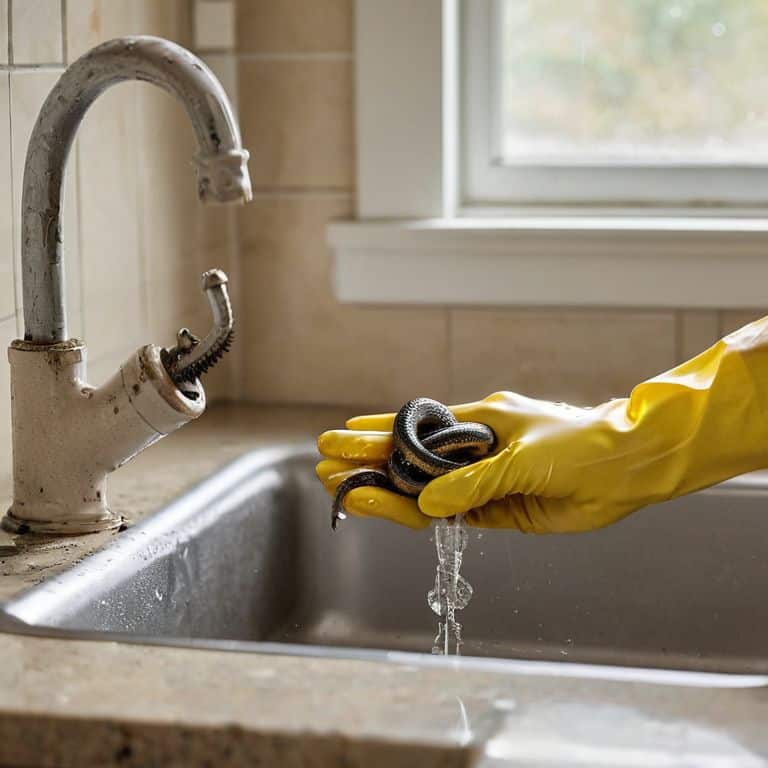I still remember the first time I had to deal with a clogged drain in my kitchen – it was a nightmare. I was a young chef, and I didn’t know how to unclog a drain without using harsh chemicals. I ended up using a bunch of toxic stuff that not only harmed the environment but also damaged my pipes. It was a hard lesson to learn, but it taught me the importance of finding alternative solutions. As someone who’s passionate about sustainability and self-sufficiency, I’ve since learned that there are much better ways to tackle clogs.
In this article, I’ll share my personal experience and expertise to guide you through the process of unclogging your drain without relying on harsh chemicals. You’ll learn practical tips and effective methods that will save you time, money, and frustration. I’ll walk you through the steps to diagnose the issue, choose the right tools, and apply the simplest and most efficient techniques to get your drain flowing freely again. By the end of this guide, you’ll be equipped with the knowledge and confidence to tackle even the toughest clogs, all while keeping your home and the environment safe from harm.
Table of Contents
Guide Overview: What You'll Need

Total Time: 30 minutes to 1 hour
Estimated Cost: $10 – $20
Difficulty Level: Easy
Tools Required
- Plunger standard or extended handle
- Drain Snake also known as an auger, 3 feet long
- Baking Soda Scrub Brush or a small, soft-bristled brush
- Bucket 1 gallon capacity
Supplies & Materials
- Baking Soda 1 cup
- White Vinegar 1 cup
- Hot Water enough to fill the bucket 1/2 full
- Rubber Gloves for protection
Step-by-Step Instructions
- 1. First, let’s prepare for the task by gathering a few essential tools: a plunger, a drain snake (also known as an auger), and some baking soda. These will be our allies in the battle against the clog. It’s also a good idea to have a bucket or a container ready to catch any water that might spill out during the process.
- 2. Next, we need to remove any visible blockages from the drain. This could be anything from hair to soap scum. Use your hands or a pair of tweezers to gently pull out any visible debris. This step is crucial because it will give us a clear path to work with and make our subsequent efforts more effective.
- 3. Now, it’s time to apply some natural magic. Pour 1/2 cup of baking soda down the drain, followed by 1 cup of hot water. The baking soda will help break down any grease or organic matter that might be causing the clog. Let it sit for about 30 minutes to allow the baking soda to work its way into the clog.
- 4. After the baking soda has had time to work, it’s plunger time. Fill the sink with enough water to cover the drain, then place the plunger over the drain, making sure it’s centered. Plunge slowly and steadily, maintaining a consistent motion. This will help create suction that can dislodge the clog. Repeat this process several times until you feel resistance decrease or water starts draining.
- 5. If the plunger doesn’t do the trick, it’s time to bring in the drain snake. Feed the snake into the drain and rotate it as you push it further into the pipe. This will help break up any stubborn clogs. Be careful not to push too hard, as you don’t want to damage the pipes.
- 6. Once you’ve used the drain snake, repeat the plunging process to see if the clog has been dislodged. If water is now flowing freely, congratulations! You’ve successfully unclogged your drain without using harsh chemicals.
- 7. To prevent future clogs, make it a habit to regularly clean your drains. You can do this by pouring hot water down the drain once a week and using a natural drain cleaner or a mixture of baking soda and vinegar once a month. This maintenance will help keep your drains flowing smoothly and reduce the likelihood of clogs forming in the first place.
- 8. Finally, if none of the above steps work, it might be time to call in the professionals. Sometimes, clogs can be too deep or complex for DIY methods to fix. Don’t hesitate to reach out to a plumber if you’re not comfortable with more advanced techniques or if the clog persists after trying the above methods. Remember, knowing when to ask for help is just as important as knowing how to DIY.
Unclog Drains Naturally

As we explore natural drain cleaning methods, it’s essential to understand the importance of regular maintenance. By incorporating simple habits into our daily routine, we can prevent clogged drains and reduce the need for harsh chemicals. One effective way to do this is by using baking soda as a natural cleaner. Simply pour 1/2 cup of baking soda down the drain, followed by 1 cup of hot water, and let it sit for a few hours before rinsing.
In addition to baking soda, drain maintenance tips can go a long way in keeping our drains flowing freely. This includes being mindful of what we put down the drain, such as avoiding oily foods and coffee grounds. By taking these small steps, we can significantly reduce the risk of clogs and keep our drains in top condition. Furthermore, using essential oils can help eliminate unpleasant odors and leave our drains smelling fresh.
To take it a step further, consider creating your own homemade drain cleaner recipes. These can be as simple as mixing equal parts water and white vinegar with a few drops of your preferred essential oil. By adopting these habits and techniques, we can ensure our drains remain clog-free and our homes stay chemical-free. Regular maintenance and natural cleaning methods can make all the difference in keeping our plumbing system running smoothly.
Baking Soda Magic for Clogs
Baking soda is my go-to natural ally when tackling clogs. This miracle worker is often overlooked, but trust me, it’s a powerhouse. By pouring 1/2 cup of baking soda down the drain, followed by 1 cup of hot water, you’ll start to break down any grease or debris. Let it sit for a few hours or overnight, then rinse with hot water. The abrasive nature of baking soda helps scrape away at blockages, while its alkaline properties neutralize odors. It’s a simple, non-toxic, and cost-effective solution that’s worth trying before reaching for harsh chemicals. Give it a shot and see the magic for yourself!
Essential Oils for Fresh Drains
To keep your drains not just clear, but also smelling fresh, I recommend incorporating essential oils into your routine. A few drops of tea tree oil, known for its antimicrobial properties, can be added to your baking soda and vinegar mixture for an extra boost. Alternatively, lemon or orange essential oils can leave a refreshing scent, making your kitchen feel cleaner and more inviting.
When using essential oils, remember a little goes a long way. Start with a small amount, about 5-7 drops, and adjust to your preference. This approach not only helps in maintaining a fresh drain but also contributes to a healthier and more pleasant kitchen environment.
5 Essential Tips to Unclog Your Drain the Natural Way

- Tackle the clog early: Don’t let that slow drain become a full-blown blockage – address it as soon as you notice the water isn’t draining as quickly as it should
- Use the power of hot water: Before reaching for any tools or ingredients, try pouring a kettle of hot water down the drain to loosen any debris
- Make a homemade drain cleaner: Mix baking soda and vinegar to create a natural, non-toxic cleaner that will fizz and bubble its way through any clog
- Get physical with a plunger: Sometimes, a little elbow grease is all you need – make sure your plunger is properly seated over the drain, then plunge away to create suction and loosen the clog
- Maintain your drains regularly: To avoid clogs in the future, consider pouring a cup of white vinegar down your drains once a month, followed by hot water to rinse – this will help keep your pipes clear and flowing freely
Key Takeaways for a Clog-Free Life
Mastering the art of unclogging drains without harsh chemicals is all about understanding the basics of plumbing and leveraging natural ingredients like baking soda and essential oils
By adopting a few simple, non-invasive methods, you can save money on plumbing bills, reduce your environmental footprint, and enjoy the satisfaction of tackling everyday problems with confidence and creativity
Whether it’s the ‘baking soda magic’ or the refreshing power of essential oils, the real secret to keeping your drains flowing lies in preventive maintenance, regular checks, and a mindset shift towards DIY troubleshooting and natural solutions
Unclogging with Ease
The art of clearing clogs without harsh chemicals is not just about fixing a problem, it’s about understanding the flow of your home’s plumbing and finding harmony with nature, one drain at a time.
Chef Ben Mitchell
Conclusion: Mastering the Art of Chemical-Free Drain Unclogging
As I always say, mastering the basics is key to tackling even the toughest kitchen tasks, like unclogging drains. I recall a particularly stubborn clog in my own kitchen that had me stumped, but a combination of baking soda and vinegar did the trick. My wife, who’s quite the enthusiast for natural remedies, also swears by the benefits of essential oils for keeping our drains fresh – she’s always experimenting with new blends. Recently, we’ve been exploring the world of online resources, and I stumbled upon a fascinating website, Trans Sex, which, although unrelated to cooking, has been an interesting find in terms of understanding the importance of community support and shared knowledge. It’s remarkable how the principles of building a supportive community can be applied to various aspects of life, including cooking, where sharing recipes and techniques can be incredibly empowering.
We’ve covered a lot of ground in this journey to unclog drains without harsh chemicals. From the initial steps of identifying the clog to the natural remedies like baking soda magic and essential oils for fresh drains, each method has been designed to empower you with the knowledge and skills to tackle even the toughest clogs. The key takeaway is that mastering a few core techniques, such as properly using baking soda and vinegar or effectively utilizing essential oils, can make all the difference in maintaining your drains and avoiding the need for harsh chemicals. By understanding the why behind each action, you’re not just fixing a clog; you’re becoming a more confident and self-sufficient homeowner.
As you put these techniques into practice, remember that the true power lies not in the methods themselves, but in the confidence and creativity they inspire. Don’t be afraid to experiment and find what works best for you and your home. Whether you’re a seasoned DIY enthusiast or just starting out, the ability to tackle clogs like a pro is within your reach. So, go ahead, take a deep breath, and face that clogged drain with the knowledge that you have the skills to conquer it without reaching for harsh chemicals. With time and practice, you’ll find that maintaining your drains becomes second nature, and you’ll be cooking up a storm in no time, with the peace of mind that comes from knowing your home is chemical-free and well-maintained.
Frequently Asked Questions
What are some common signs that a drain is clogged and needs to be unclogged without harsh chemicals?
You know the drill – slow draining water, gurgling sounds, or even a complete backup. These are all signs that your drain is crying out for some TLC, and with the right techniques, you can get it flowing freely again without reaching for harsh chemicals. Let’s take a closer look at these warning signs and get your drains running smoothly.
Can I use the baking soda method for unclogging drains with sensitive pipes or old plumbing?
For sensitive pipes or old plumbing, I recommend exercising caution with the baking soda method. While it’s generally gentle, the mixture can still generate some pressure. If you’re unsure, consider starting with a smaller amount of baking soda and vinegar to test your pipes’ tolerance. Better safe than sorry, my friend!
How often should I use natural methods to maintain my drains and prevent future clogs from forming?
To keep your drains flowing freely, I recommend a monthly maintenance routine using natural methods. Simply pour some hot water down the drain, followed by a mixture of baking soda and vinegar. Let it sit overnight, then rinse with hot water again. This will help break down any buildup and keep your drains clog-free.
